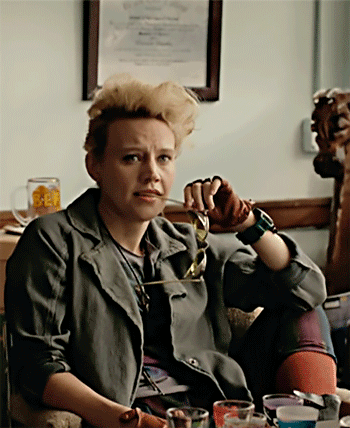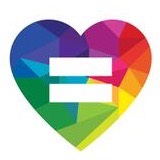I promised you reposts while I’m on holiday, so reposts are what you will receive! This post- Boundaries, Thresholds and Love: why it’s time to take back ‘Bi’– is extremely close to my heart. I’ve poured a lot of time and love into the bi+ community here where I live. I care deeply about how we create and constitute that community. This post is written especially for people within our nonmonosexual community, but it’s relevant for everyone.
I love ‘pan’ and ‘queer’. They’re fantastic words, and one of them is one of my absolute favourite words to describe myself. To put it in far more words: I am not arguing against the fact that there are a diversity of labels that people in the bi+ umbrella choose to use. We all have differing experiences, orientations, and ways of understanding these, and that is a damn good thing. But their use to the exclusion of bi comes from biphobia.
Let me phrase that again, with entirely different emphasis: Their use, to the exclusion of bi, comes from biphobia.
There are certain biphobic threads that I have noticed within pansexual/queer communities and discourse. Things you hear all the time. Things like:
“I’m not bi- I don’t see gender”
“I’m attracted to the person, not the body”
“Bisexuals are attracted to men and women, but I’m capable of loving all kinds of people”
It’s kind of painful to read/hear, to be honest. But, y’know something? I know what it feels like to say things like that. I used to say those things. All of them. They are, of course, all bullshit.
We all see gender- we’re bathed in gender, whether we like it or not, in every interaction we have with another person from the moment we’re born. It’s one thing to say that we don’t want to live in a world divided along coerced gendered lines. It’s another thing to blithely go about your life pretending that you already do. To do that only ignores the myriad of gendered ways in which all of us act towards ourselves and others. Saying that you don’t see gender just ’cause you can be attracted to people regardless of it isn’t a get-out-of-jail-free card from doing the painful work of dismantling your own internalised misogynies and heteronormativities.
As for the second? People who are attracted to multiple genders are no more or less likely than monosexuals to have physical traits they find attractive. And the idea that physical attraction is somehow less valid than, or exclusive of, attraction to someone as a person is the height of sex-shaming. There is nothing shallow or meaningless about being physically attracted to people. And being physically attracted to someone doesn’t mean for a second that you can’t fancy the hell out of their brains as well.
As for the third one? We’ll get to that, but suffice it to say that bi+ communities haven’t been using the definition of bisexuality as meaning attraction to men and woman for a long time.
I said earlier that I’m not here to rag on people who use pan or queer. That’s not what this has been for- hell, I use one of them myself, and used the other for a long time as well. I’m talking about this because all of these statements come from a painful-as-hell place of internalised biphobia, and none of them will, in the long run, do a damn thing to make anyone’s situation better.
I love ‘pan’ and ‘queer’. They’re fantastic words, and one of them is one of my absolute favourite words to describe myself. To put it in far more words: I am not arguing against the fact that there are a diversity of labels that people in the bi+ umbrella choose to use. We all have differing experiences, orientations, and ways of understanding these, and that is a damn good thing. But their use to the exclusion of bi comes from biphobia.
Let me phrase that again, with entirely different emphasis: Their use, to the exclusion of bi, comes from biphobia.
There are certain biphobic threads that I have noticed within pansexual/queer communities and discourse. Things you hear all the time. Things like:
“I’m not bi- I don’t see gender”
“I’m attracted to the person, not the body”
“Bisexuals are attracted to men and women, but I’m capable of loving all kinds of people”
It’s kind of painful to read/hear, to be honest. But, y’know something? I know what it feels like to say things like that. I used to say those things. All of them. They are, of course, all bullshit.
We all see gender- we’re bathed in gender, whether we like it or not, in every interaction we have with another person from the moment we’re born. It’s one thing to say that we don’t want to live in a world divided along coerced gendered lines. It’s another thing to blithely go about your life pretending that you already do. To do that only ignores the myriad of gendered ways in which all of us act towards ourselves and others. Saying that you don’t see gender just ’cause you can be attracted to people regardless of it isn’t a get-out-of-jail-free card from doing the painful work of dismantling your own internalised misogynies and heteronormativities.
As for the second? People who are attracted to multiple genders are no more or less likely than monosexuals to have physical traits they find attractive. And the idea that physical attraction is somehow less valid than, or exclusive of, attraction to someone as a person is the height of sex-shaming. There is nothing shallow or meaningless about being physically attracted to people. And being physically attracted to someone doesn’t mean for a second that you can’t fancy the hell out of their brains as well.
As for the third one? We’ll get to that, but suffice it to say that bi+ communities haven’t been using the definition of bisexuality as meaning attraction to men and woman for a long time.
I said earlier that I’m not here to rag on people who use pan or queer. That’s not what this has been for- hell, I use one of them myself, and used the other for a long time as well. I’m talking about this because all of these statements come from a painful-as-hell place of internalised biphobia, and none of them will, in the long run, do a damn thing to make anyone’s situation better.
Read the rest – I promise, it’s worth your while- and let me know what you think, right?






